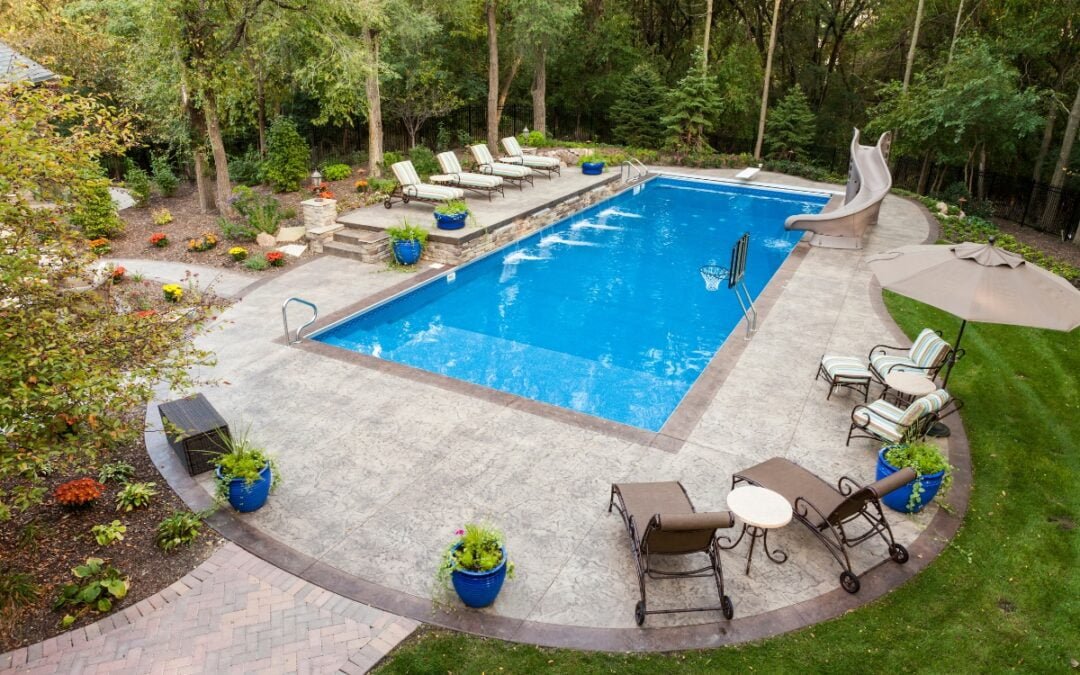When it comes to designing your own personal oasis, choosing the right shape and size for your pool is a key decision that can make or break the overall aesthetic of your backyard.
Do you go for a classic rectangular shape or opt for a more organic and free-flowing design? Should you go big and bold or keep it cozy and intimate? These are just a few of the questions that may be swirling around in your mind as you contemplate the perfect pool for your space.
In this blog post, we will take a deep dive into the world of pool design and explore the tips and tricks for choosing the right shape and size. So, if you’re ready to learn how to make the most out of your pool design, keep reading and discover the secrets to choosing the perfect pool shape for your outdoor haven.
Which Pool Shape Suits You Best? Find Your Perfect Fit for the Ultimate Backyard Oasis!
Considering Your Backyard Space
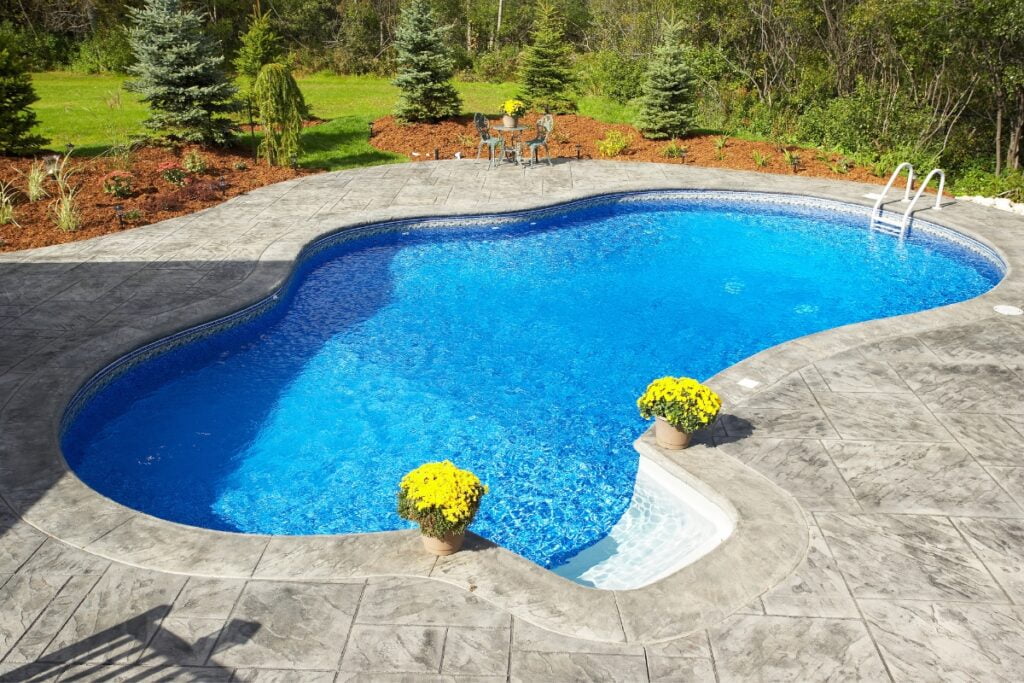
When it comes to choosing the right pool shape and size, it’s important to consider your backyard space. Your available space will ultimately determine the options that are suitable for your pool. By carefully considering your backyard, you can make an informed decision that maximizes both functionality and aesthetics.
One of the first things to consider is the shape of your pool. Different pool shapes can have different implications for your backyard space. For smaller yards, a rectangular or square-shaped pool may be more suitable, as it can help maximize the available space. These shapes have straight edges that align well with the boundaries of your backyard, creating a clean and organized look.
If you have a larger backyard, you can consider more elaborate pool shapes, such as kidney-shaped or freeform pools. These shapes can add a touch of uniqueness and create a visually appealing focal point in your outdoor space. However, it’s important to ensure that the shape you choose complements the overall layout and design of your backyard.
In addition to shape, size is another crucial factor to consider. The size of your pool should be determined by the available space in your backyard, as well as your lifestyle and preferences. Take into account the activities you plan to enjoy in and around the pool, such as swimming, sunbathing, or hosting pool parties. This will help you determine the ideal size that meets your needs.
Keep in mind that the pool should not overpower the rest of your backyard. It should seamlessly blend with the surrounding landscape and other outdoor features. Consider leaving enough space for additional elements like a deck, patio, or greenery. This will create a harmonious and balanced outdoor living area.
Assessing the Architectural Style of Your Home
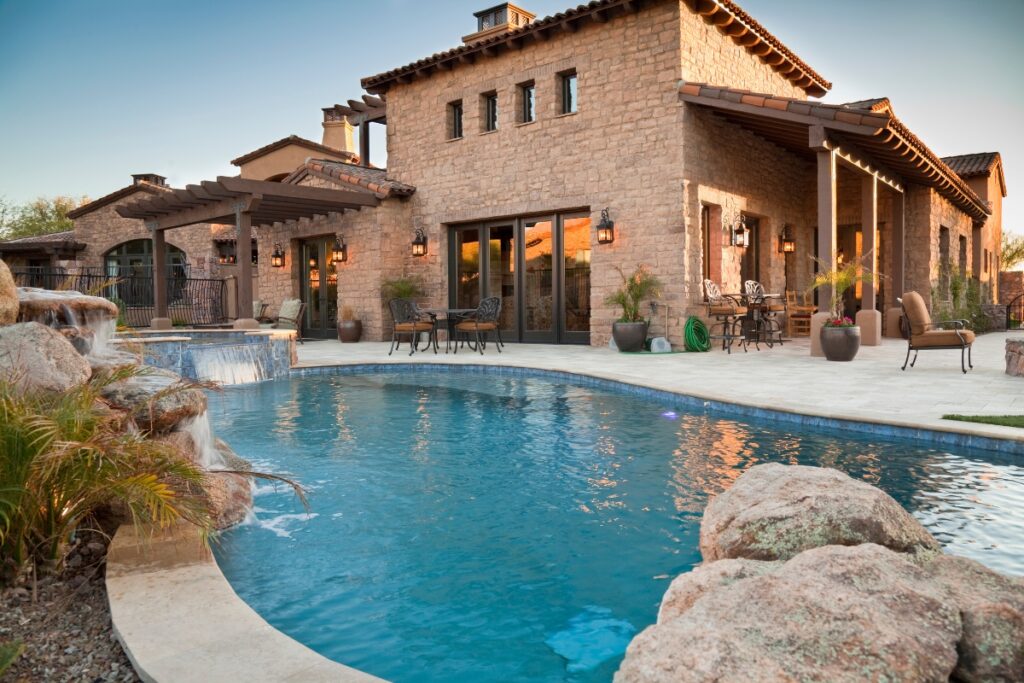
When it comes to assessing the architectural style of your home, there are several factors to consider. The style of your home can greatly impact its overall aesthetic appeal and value. Whether you have a modern, traditional, or eclectic style, understanding the architectural elements can help you make informed decisions when it comes to home improvements and renovations.
One of the first steps in assessing the architectural style of your home is to take a closer look at its exterior. Look at the shape and structure of the building, paying attention to features such as the roofline, windows, and doors. These elements can provide clues about the architectural style. For example, a home with a steeply pitched roof and dormer windows may indicate a Gothic or Victorian style, while a flat roof and large glass windows may suggest a modern or contemporary design.
Next, examine the materials used in the construction of your home. Different architectural styles often incorporate specific materials that are characteristic of that style. For instance, a home with brick or stone exteriors may have a more traditional or colonial style, while a home with sleek metal panels or concrete may have a more industrial or minimalist design.
Consider the overall layout and floor plan of your home. Certain architectural styles have distinct floor plans and room configurations. For example, a Craftsman-style home typically features an open floor plan, with prominent woodwork and built-in furniture. On the other hand, a Victorian-style home may have smaller, compartmentalized rooms with intricate detailing.
Don’t forget to assess the interior architectural features as well. Look at the details in the finishes, such as crown molding, baseboards, and trim work. These elements can provide valuable insights into the architectural style of your home. Traditional styles often have more ornate and decorative details, while modern styles tend to have cleaner lines and simpler finishes.
It’s important to note that many homes may have a mix of architectural styles, especially if they have undergone renovations or additions over the years. The key is to identify the dominant architectural style and work with it to enhance the overall look and feel of your home.
Understanding the Functionality of Different Pool Shapes
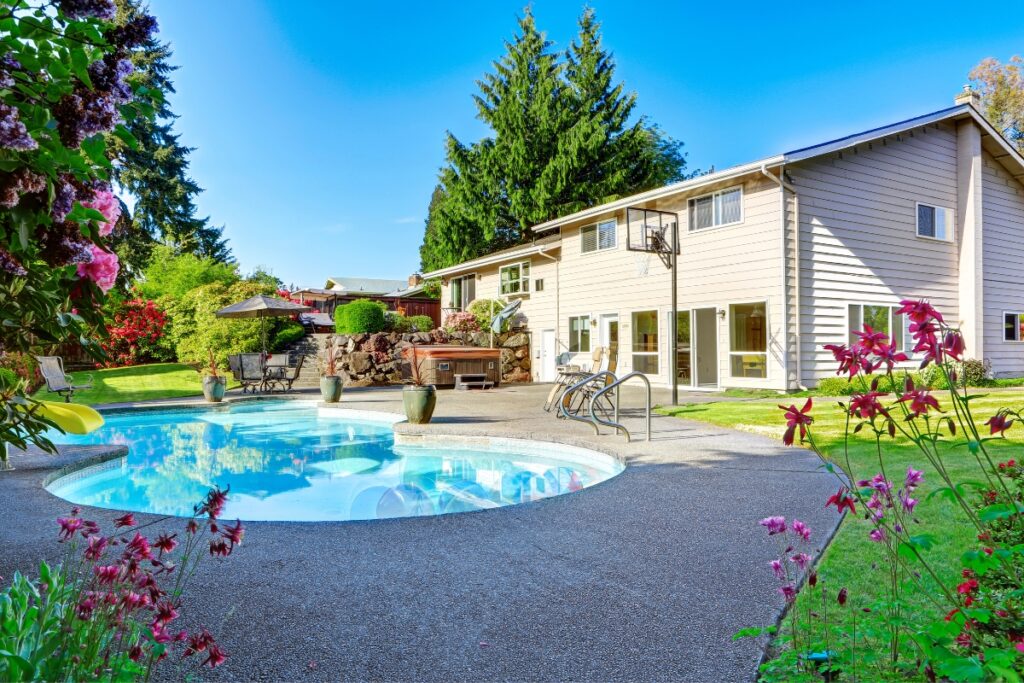
When it comes to building a pool, the shape you choose plays a significant role in both the aesthetic appeal and functionality of your backyard oasis. Each pool shape offers its unique features and benefits, and understanding these differences can help you make an informed decision.
Rectangular Pool Shape
The rectangular pool shape is a classic choice that never goes out of style. Its sleek and linear design is perfect for lap swimming and other water activities. If you enjoy exercising in the water, a rectangular pool provides ample space for swimming back and forth without any obstructions. Additionally, this shape maximizes the available swimming area, making it ideal for larger gatherings or hosting pool parties.
Kidney Pool Shape
The kidney-shaped pool offers a more organic and natural look to your backyard. Its flowing curves mimic the shape of a kidney, hence the name. This shape is excellent for those who prefer a more relaxed and informal pool environment. The rounded edges create a softer ambiance, making it visually appealing and inviting. The kidney shape also allows for various seating and lounging areas, perfect for those who enjoy spending time in the water without necessarily swimming.
Freeform Pool Shape
If you desire a pool that stands out with its uniqueness, a freeform shape might be the perfect choice for you. This shape allows for endless creativity, as it can be custom-designed to fit your backyard’s specific features and contours. Freeform pools often resemble natural bodies of water, such as lagoons or ponds, creating a tranquil and relaxing atmosphere. The irregular shape of a freeform pool also allows for versatile landscaping opportunities, including the integration of rocks, waterfalls, and lush vegetation.
L-Shaped Pool Shape
The L-shaped pool provides a blend of the rectangular and kidney shapes. It is an excellent option for those who want both a dedicated swimming area and a separate section for relaxation or water games. The L-shape allows for a clear division between these areas, providing versatility in pool usage. Whether you want to swim laps or enjoy a leisurely afternoon by the pool, the L-shaped design offers the best of both worlds.
Oval Pool Shape
The oval pool shape combines the formality of a rectangular pool with the softer curves of a round pool. It offers a good compromise between the two, providing a visually pleasing shape without compromising too much on swim space. The oval shape is also ideal for families with young children or pets, as there are no sharp corners to worry about.
Exploring the Aesthetic Appeal of Pool Shapes
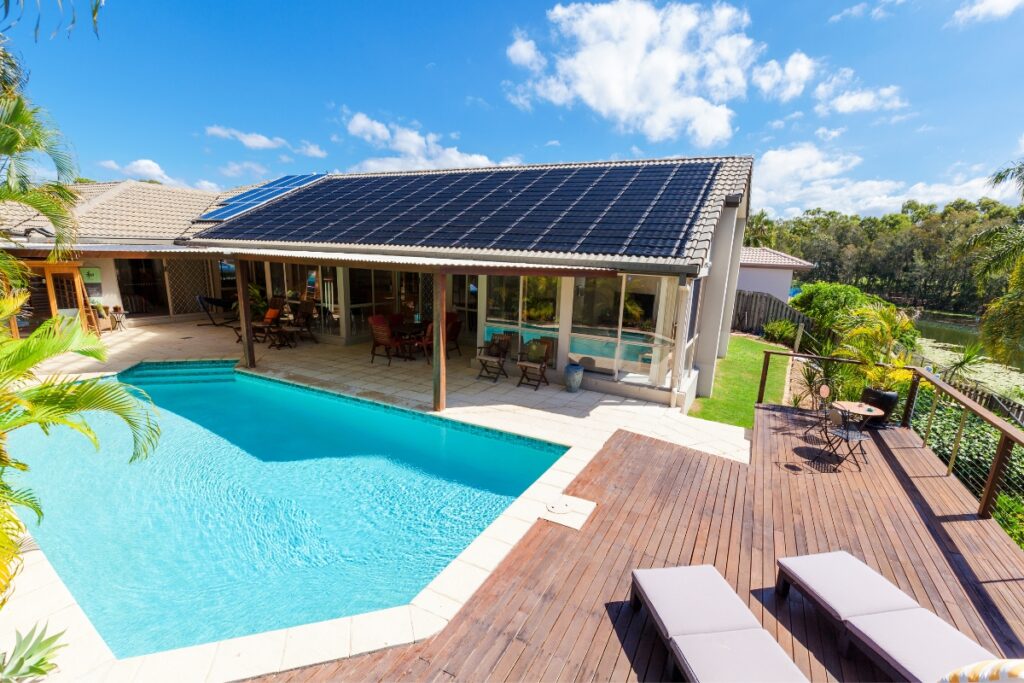
When it comes to designing a pool, one of the most important factors to consider is the shape. The shape of a pool not only affects its visual appeal, but also its functionality and overall experience.
Rectangular pools are a classic choice that never goes out of style. With clean lines and a symmetrical layout, rectangular pools exude elegance and sophistication. They are perfect for those who prefer a more traditional and timeless look. Additionally, the straight edges of a rectangular pool make it easier to install safety covers and pool covers, ensuring the safety of your loved ones.
If you’re looking for a more modern and contemporary pool design, consider opting for a geometric shape. Geometric pools can come in a variety of shapes such as squares, triangles, or even hexagons. These unconventional shapes add visual interest and create a unique focal point in your backyard. Geometric pools are often complemented by sleek, minimalist landscaping, making them a popular choice among homeowners with a taste for contemporary design.
Curved pools, on the other hand, offer a softer and more organic aesthetic. With gentle curves and flowing lines, these pools mimic the natural shapes found in nature. Curved pools blend seamlessly with their surroundings, creating a tranquil oasis in your backyard. They are especially popular for those who want to create a more relaxing and serene atmosphere.
If you have a small backyard or limited space, consider choosing a kidney-shaped pool. Kidney-shaped pools are compact and versatile, making them ideal for maximizing space. Despite their smaller size, they still offer plenty of room for water-related fun like swimming and other fun activities. The curved shape of a kidney pool adds a touch of whimsy and charm to any outdoor space.
Evaluating the Size of Your Pool
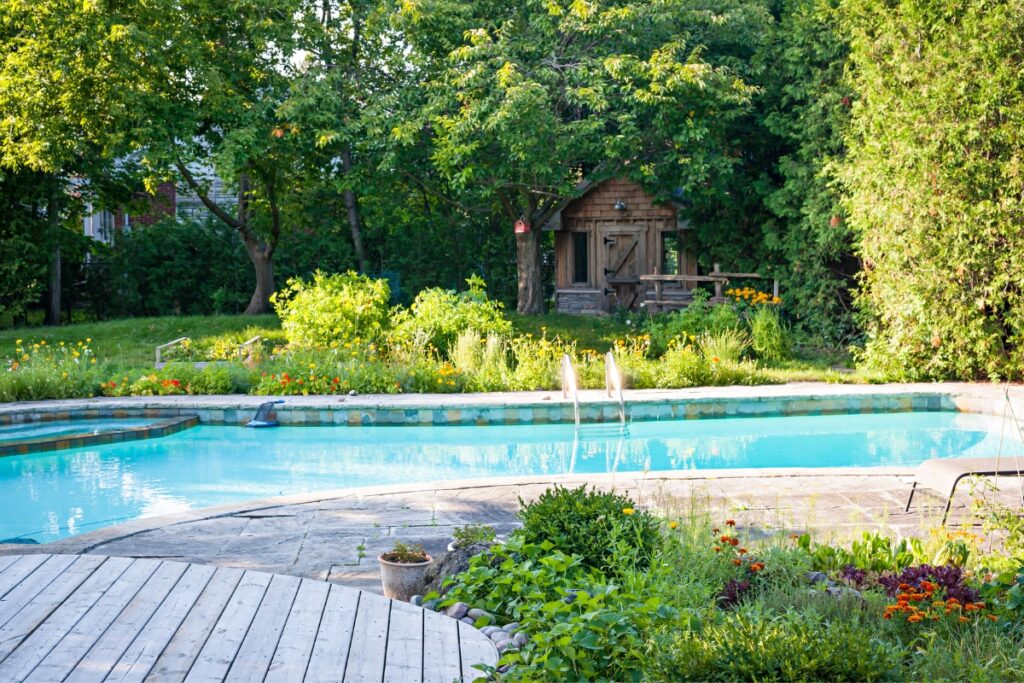
When it comes to evaluating the size of your pool, there are several factors to consider. One of the main considerations is the available space in your backyard. Before diving into pool shape and size, it’s important to assess the dimensions of your outdoor area. This will help determine the maximum size your pool can be without overwhelming the space.
Another factor to take into account is your intended use for the pool. Are you planning on hosting large pool parties, or do you simply want a quiet space to relax and cool off? The size of your pool should align with your lifestyle and preferences. If you have a big family or frequently entertain guests, a larger pool may be more suitable. However, if you have a smaller space or prefer a more intimate setting, a smaller pool might be the better choice.
Determining the Intended Use of Your Pool

When it comes to choosing the right pool shape and size, one of the most important factors to consider is the intended use of the pool. Understanding how you plan to use your pool can help you make a decision that perfectly suits your needs and preferences.
First and foremost, think about who will be using the pool. Is it primarily for adults, or will children be using it as well? If you have young children or plan to have children in the future, safety should be a top priority. In this case, a pool with a shallow end or a gradual slope may be more suitable. On the other hand, if the pool is mainly for adults, you may prefer a deeper pool for swimming and diving.
Next, consider the activities you envision enjoying in your pool. Are you a fitness enthusiast who plans to use the pool for exercise? If so, a lap pool may be the ideal choice. These pools are longer and narrower, allowing for uninterrupted swimming. If relaxation is your main goal, a pool with built-in seating or a spa feature can provide the perfect space to unwind and rejuvenate.
Balancing Budget and Design
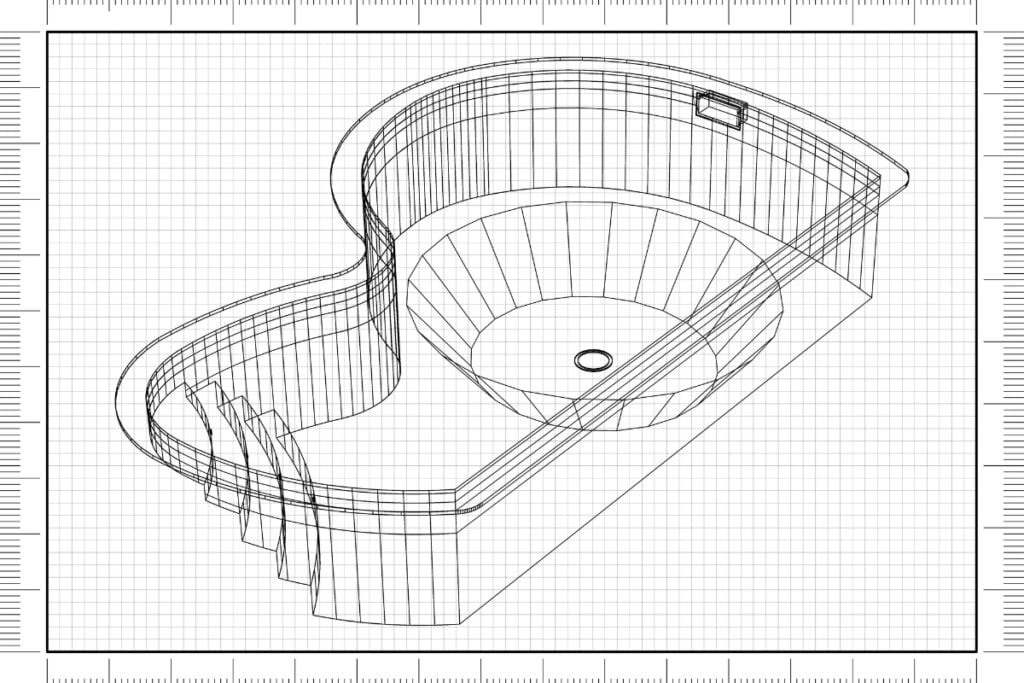
When it comes to creating a pool, finding the perfect balance between budget and design is crucial. Regardless of your budget limitations, there are ways to achieve a pool that not only fits your financial constraints but also reflects your personal style and enhances your outdoor space.
One of the first factors to consider is the pool shape. The shape of your pool can greatly impact both its cost and aesthetic appeal. Rectangular pools, for example, are often more cost-effective to build, as they require fewer materials and less labor compared to custom shapes. Additionally, their clean lines and timeless design make them a popular choice for many homeowners.
However, if you’re looking to add a unique touch to your pool, custom shapes can be a great option. From kidney-shaped to freeform designs, custom shapes allow you to create a pool that perfectly complements your outdoor space and personal preferences. It’s important to note that these custom shapes may come with a higher price tag due to the additional materials and labor involved.
In addition to pool shape, size is another important consideration. Larger pools often come with a higher price tag, as they require more materials and take longer to construct. However, if you have ample space and envision your pool as a centerpiece for entertaining and relaxation, investing in a larger size may be worth it.
On the other hand, if you’re working with a tight budget or have limited space, a smaller pool can still offer plenty of enjoyment. Compact pools can be just as inviting and refreshing without breaking the bank. Consider incorporating features such as a built-in spa or a water feature to maximize the appeal of a smaller pool.
To strike the right balance between budget and design, it’s essential to plan ahead and consult with a professional pool builder. They can provide valuable insights on the cost implications of different pool shapes and sizes, as well as offer suggestions on how to achieve your desired design within your budget constraints.
Remember, the key is to prioritize what matters most to you. Whether it’s the shape, size, or specific features, understanding your own preferences will help guide your decision-making process. With careful planning and consideration, you can create a beautiful pool that meets both your budget and design goals.
Seeking Professional Advice and Expert Opinions
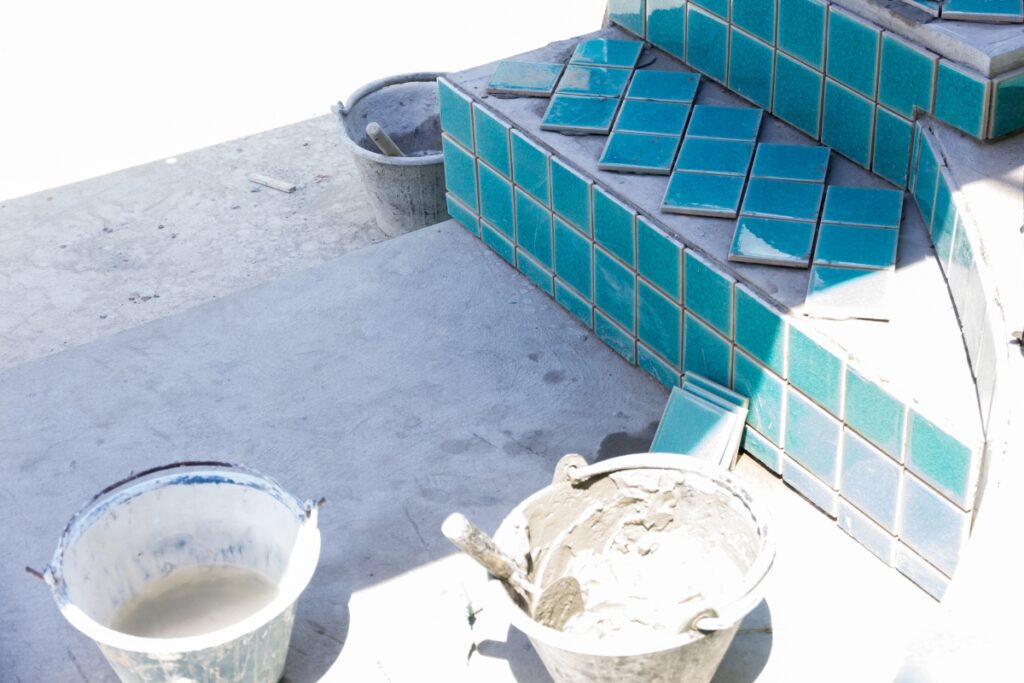
When it comes to choosing the right pool shape and size, seeking professional advice and expert opinions can be incredibly valuable. With so many options available, it can be overwhelming to make a decision on your own. By consulting with professionals in the field, you can gain insights into the best pool shape and size for your specific needs and preferences.
One of the main benefits of seeking professional advice is the expertise they bring to the table. Pool designers and builders have extensive knowledge and experience in creating pools that not only look great but also function effectively. They understand the nuances of different shapes and sizes and can provide valuable recommendations based on your desired pool usage, available space, and overall design aesthetic.
Another advantage of consulting experts is their access to the latest trends and innovations in pool design. They stay up to date with industry developments and can introduce you to new shapes and sizes that you may not have considered. By leveraging their expertise, you can create a pool that is not only visually appealing but also incorporates the latest features and technologies.
Additionally, professionals can offer valuable insights into the practical aspects of pool shape and size. They can assess your backyard space and determine the most suitable options that maximize its potential. They can also take into account factors such as the surrounding landscape, architectural style of your home, and any existing structures that need to be considered during the pool construction process.
While it’s important to take professional advice into account, it’s also essential to consider your own preferences and needs. Expert opinions are meant to guide you, but ultimately, the final decision should align with your vision for your pool. By combining your personal style with professional advice, you can create a pool that is both functional and aesthetically pleasing.
Conclusion
When it comes to choosing the right pool shape and size, there are several factors to consider. The pool shape you choose can significantly impact the overall aesthetics and functionality of your pool area. Additionally, selecting the appropriate pool size ensures that you have enough space for swimming and other recreational activities.
Remember, the choice of pool shape and size is subjective and dependent on your specific preferences and requirements. By considering factors such as available space, intended use, architectural style, safety, and seeking professional advice, you can choose the right pool shape and size that will enhance your outdoor space and provide years of enjoyment.
Find the right pool for your needs and budget with Clear Water Pools of Atlanta! Our team brings expertise to each project, tailoring pool-building services to match your exact desires. The end result? A breathtaking oasis that mirrors your vision, meticulously crafted with attention to every detail.
But that’s not all! We go the extra mile to ensure your pool stays in perfect condition. Our comprehensive pool care and maintenance services encompass everything from routine cleaning to equipment inspections and repairs, guaranteeing your pool remains a source of joy and relaxation for years to come.
Don’t hesitate any longer to turn your pool dreams into reality! Reach out to us now at 770-406-8638 for a free estimate, and let Clear Water Pools of Atlanta transform your backyard into the ultimate aquatic paradise!


